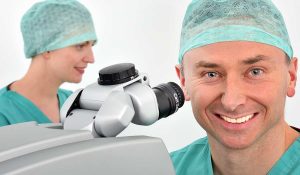It was recently announced by the BBC that The Queen has successfully undergone cataract surgery. Cataract removal is the most performed surgery in the UK and one of the safest. But what exactly is it?
We’ve compiled a list of frequently asked questions all about cataract surgery.
Does everyone develop a cataract?
As we get older, cataract development is very common. One in three people over the age of 65 has some evidence of cataract formation. Many are not aware of it. Incidence of cataracts varies between ethnic groups. 80% of British people of Indian origin who are over 45 have cataracts to some extent. By the age of 80, half of all people have cataracts.
What is a cataract?
The eyes natural lens is composed of protein called crystallin. This fibrous material is arranged in regular rows and allows light to pass through the lens without scattering. Hence, the lens is transparent.
A disadvantage of crystallin is that it becomes damaged or moves out of position over time. As the body has no natural mechanism for repairing or reordering the fibres, over time the changes build up and cause a clouding of the lens known as a cataract.
Why are NHS waiting lists so long?
Lots of people need cataract surgery and the NHS has limited funds to meet the demand. The Scottish government anticipates that as the population ages over the next 30 years, there will be a significant need for additional healthcare. The demand for cataract surgery over this time is expected to double.
How do you know if you have a cataract?
Cataracts develop slowly and can be hard to detect in their early stages so the best way to find out if you have a cataract developing is to have regular check ups with your optometrist. We recommend a full eye health check every year once you reach 40 years of age. An eye specialist will also screen for other conditions such as diabetes, glaucoma and macular degeneration, which can be treated if caught early.
When should I start thinking about surgery?
Cataracts are easier, quicker and safer to remove if they are treated early. Ideally it is preferred not to wait until they’re at an advanced stage. NHS cataract centres are often unable to treat cataracts as soon as they would like due to the high demand for care. Private treatment centres offer safe and effective cataract surgery with no waiting times, and a range of lens implant options.
Can you ‘see’ a cataract?
If you look at your eyes in a mirror you will not be able to see a cataract, even if it is quite severe. A cataract only becomes visible when it is fully mature to the extent that it turns white. At this stage you will be unable to see anything out of the affected eye, however, sometimes when a cataract develops in just one eye, the other eye can compensate so you don’t notice the cataract worsening for some time.
Where do cataracts form?
The front surface of your eye is known as the cornea. This does most of the focusing work of the eye to make sure you can see clearly. Behind the cornea is a pool of special fluid called the aqueous humour. This fluid circulates through the front of the eye and helps to pressurise the eyeball, and deliver nutrients to the cornea.
Going further back we come across the iris. This comes in a variety of colours from green to blue to brown, and is the natural camera aperture of the eye. Behind the pupil is the lens, which is 4mm thick. It is this lens that becomes cloudy when you have a cataract. The cataract extends beyond the pupil and runs along the back of the iris. The cataract is attached to the inner wall of the eye by several hundred guide wires called zonules. These look to the naked eye like strands of spider web, and are similarly tough and stretchy. On reaching the back of the cataract, we are still only 8mm from the front surface of the eye!


